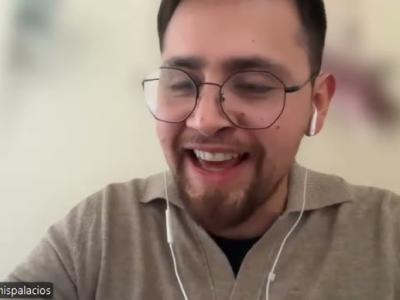Queuing outside Mary Ward House, it was immediately clear how serious President Santos’ visit was. The Colombian President, on a one-week tour of Britain, had come from a visit to Belfast – where he declared himself “inspired” by the Irish peace process – as well as meeting the Queen, Prime Minister Teresa May and Labour leader Jeremy Corbyn.
The anticipation was clear, not purely because of the strong police presence, nor the numerous security checks, but because of the excitement of the queuing crowd. It takes a lot for people to be inspired while stuck in a hundred-person queue for a speech in frosty November weather, but clearly Santos’ visit was enough to inspire Colombians here in London.
Of course, it is no secret that the main aim of Santos’ visit, especially from the UK’s perspective, was to build trade agreements with post-Brexit Britain. Yet, it was hard not to be struck by the optimistic atmosphere; discussions outside the building infused with enthusiasm. From overhearing opinions in the queue, it was surprising how the rejection of the FARC peace deal, had not severely dented these Colombians hopes for the future. Few condemned Santos’ actions, and most agreed with the sentiment that “Santos had pushed through the best deal he could”, to quote one attendee. Most also acknowledged that Colombia was still on the road to peace, despite the referendum defeat and ex-President Alvaro Uribe’s attempts to thwart Santos’ deal.

Inside, the hall could fit 400, but many more huddled around the edges, with media reporters and cameramen, fighting for space to broadcast Santos’ words to the world. As the crowd filled, a handful of Colombian women unfurled a large painting of the Colombian flag. On it, numerous paper butterflies had been stuck on it, with messages written to the President. Even at a brief glimpse, the audience’s message was clear from the words on the various banners “Paz para Colombia” (Peace for Colombia), opposite “Queremos paz” (We want Peace), alongside hundreds of notes with similar sentiments. Indeed, the prevelant theme at this event was peace, not business, with dozens of audience members holding white flowers tied up with the Colombian flag.
After the hall had filled, there was a brief interlude before Santos took to the stage. One could not help be struck by his relaxed aura – a week of diplomacy and months of negotiations had not exhausted him completely. The speech started by detailing (and praising) his time in Britain – making particular note of his visit to Belfast and meetings with people involved with the Good Friday agreement – and discussing his wider desire for closer UK-Colombia relations. But Santos spent most of his time discussing the wider struggle for peace; the main cause of concern for Britain’s Colombian community. Santos took care to praise all sides of the peace process, and admitted the “difficulties” that had occurred over the past few months. But he maintained a statesmanlike demeanour throughout.
The audience nodded with strong approval as Santos reaffirmed his commitment to peace, and the audience laughed when he slipped in some light-hearted humour; usually involving a mention of Uribe. It seemed symbolic that Santos remained passionate but controlled, whilst police sirens blared outside. His hands motioned in accordance with his words; with his arms stretched outwards to emphasise the struggle that still lies ahead, and his hands entwined to illustrate cohesion and progress. Santos reiterated his desire to reform the “War on Drugs” and to leave a positive legacy – a direct challenge to political rivals who thought his government had lost legitimacy with the referendum defeat.
Finally, the end of the speech. The crowd stood to applaud the Colombian leader, and a brief Q&A session commenced. A sea of hands immediately shot up from the crowd. Most of the audience selected detailed their own experiences and views of the struggle for peace, and some came on to the stage to hand him tokens of appreciation – an origami swan, a book about peace, even the poster with butterflies mentioned before.
One particularly pertinent question asked Santos about what he thought his legacy would be, with the President immediately acknowledging that the events of the past few months will define his Presidency. Each declaration of pride for Colombia and desire for peace is met with rapturous applause, and every joke met with laughter. Overall, it was a night of optimism, but one tempered by recent events – as the case was always likely to be. But still, Santos’ words at least convinced everyone in the audience that a peaceful future was possible. Whether what Colombians in the UK feel, and how that is reported back, matter in Colombia - is perhaps less convincing.















